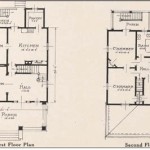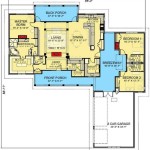Finding plans for your house is an important step in the home building process. House plans provide a detailed blueprint for the construction of your home, including the layout of the rooms, the placement of windows and doors, and the structural details. Having a well-designed plan will help to ensure that your home is built to your specifications and that it meets all of your needs.
There are a number of ways to find plans for your house. You can purchase plans from a home plan company, hire an architect to design a custom plan, or find free plans online. Each option has its own advantages and disadvantages, so it is important to carefully consider your needs and budget before making a decision.
The main body of this article will discuss the different ways to find plans for your house. We will provide tips on how to choose a plan that meets your needs, and we will discuss the costs associated with each option.
Here are 10 important points about how to find plans for your house:
- Define your needs.
- Set a budget.
- Research different plan types.
- Consider hiring an architect.
- Purchase plans from a plan company.
- Find free plans online.
- Read reviews and compare prices.
- Make sure the plans are complete and accurate.
- Have the plans reviewed by a professional.
- Get a building permit before starting construction.
By following these tips, you can find the perfect plans for your house and ensure that your home is built to your specifications.
Define your needs.
The first step in finding plans for your house is to define your needs. This includes considering the following factors:
- The size of your family. How many bedrooms and bathrooms do you need? Do you need a home office or a guest room?
- Your lifestyle. Do you entertain often? Do you have hobbies that require a dedicated space?
- Your budget. How much can you afford to spend on a home?
- The location of your home. What type of climate do you live in? Are there any zoning restrictions that you need to be aware of?
Once you have a good understanding of your needs, you can start to narrow down your search for plans.
Set a budget.
Once you have defined your needs, the next step is to set a budget for your home. This will help you to narrow down your search for plans and ensure that you don’t overspend.
- Determine how much you can afford to spend. This includes considering your income, your debts, and your savings. You should also factor in the cost of land, construction, and permits.
- Get pre-approved for a mortgage. This will give you a good idea of how much money you can borrow and what your monthly payments will be.
- Be realistic about your budget. Don’t overextend yourself financially. It’s better to build a smaller home that you can afford than to build a larger home that you can’t.
- Be prepared to compromise. You may not be able to find a plan that meets all of your needs within your budget. Be prepared to make some compromises, such as choosing a smaller home or a less expensive plan.
Setting a budget is an important part of the home building process. By following these tips, you can ensure that you find a plan that meets your needs and that you can afford.
Research different plan types.
Once you have defined your needs and set a budget, the next step is to research different plan types. There are a wide variety of plans available, so it is important to take some time to find a plan that meets your specific needs and preferences.
Here are a few of the most common plan types:
- Traditional plans. Traditional plans are based on classic architectural styles, such as Colonial, Victorian, and Craftsman. These plans typically feature symmetrical facades, pitched roofs, and formal interiors.
- Contemporary plans. Contemporary plans are characterized by their clean lines, open floor plans, and use of natural materials. These plans are often designed to maximize natural light and airflow.
- Modern plans. Modern plans are similar to contemporary plans, but they often feature more innovative designs and materials. These plans are often characterized by their use of glass, steel, and concrete.
- Ranch plans. Ranch plans are typically single-story homes with a long, low profile. These plans are often popular in warmer climates, as they offer good indoor-outdoor flow.
- Cape Cod plans. Cape Cod plans are characterized by their simple, symmetrical facades and gabled roofs. These plans are often popular in coastal areas, as they are designed to withstand high winds and storms.
Once you have familiarized yourself with the different plan types, you can start to narrow down your search. Consider your needs, your budget, and your personal preferences when choosing a plan.
Consider hiring an architect.
If you are unable to find a plan that meets your needs, or if you have a complex or unique project, you may want to consider hiring an architect. Architects are licensed professionals who are trained to design and oversee the construction of buildings. They can work with you to create a custom plan that meets your specific needs and preferences.
Here are some of the benefits of hiring an architect:
- Architects can help you to define your needs and develop a program for your project. This will help to ensure that your home is designed to meet your specific requirements.
- Architects can create custom plans that are tailored to your unique site and climate. This will help to ensure that your home is well-suited to its surroundings and that it performs well in your local climate.
- Architects can provide construction documents that are clear and complete. This will help to ensure that your home is built to your specifications and that there are no surprises during construction.
- Architects can oversee the construction of your home to ensure that it is built to code and that it meets your expectations. This can give you peace of mind and help to ensure that your home is built on time and within budget.
Of course, hiring an architect comes with some additional costs. However, the benefits of working with an architect can often outweigh the costs. If you are considering building a custom home, hiring an architect is a good investment.
Here are some tips for hiring an architect:
- Interview several architects before making a decision. This will help you to find an architect who is a good fit for your project and who you can work well with.
- Be sure to get a written contract that outlines the architect’s fees and responsibilities. This will help to avoid any misunderstandings later on.
- Work closely with your architect throughout the design and construction process. This will help to ensure that your home is built to your specifications and that you are happy with the final product.
Purchase plans from a plan company.
Another option for finding plans for your house is to purchase them from a plan company. Plan companies offer a wide variety of plans to choose from, and they can be a good option if you are looking for a specific type of plan or if you are on a budget.
- Pros of purchasing plans from a plan company:
– Plan companies offer a wide variety of plans to choose from, so you are likely to find a plan that meets your needs.
– Plan companies typically sell plans at a lower cost than architects.
– Plan companies can provide you with construction documents that are clear and complete.
– Some plan companies offer additional services, such as design consultation and construction oversight. - Cons of purchasing plans from a plan company:
– Plan companies typically do not offer custom plans. If you have a unique or complex project, you may need to hire an architect to design a custom plan for you.
– Plan companies may not be able to provide you with site-specific design services. This means that you may need to hire an architect or engineer to adapt the plans to your specific site.
– Plan companies may not be able to provide you with construction oversight services. This means that you will need to hire a contractor to oversee the construction of your home.
If you are considering purchasing plans from a plan company, be sure to do your research and compare prices before making a decision. You should also read the reviews of different plan companies to see what other customers have to say about their experience.
Find free plans online.
Another option for finding plans for your house is to find free plans online. There are a number of websites that offer free house plans, and these plans can be a good option if you are on a budget or if you are looking for a specific type of plan.
- Pros of finding free plans online:
– Free plans are available in a wide variety of styles and sizes, so you are likely to find a plan that meets your needs.
– Free plans can be downloaded instantly, so you can get started on your project right away.
– Free plans can be modified to meet your specific needs. - Cons of finding free plans online:
– Free plans may not be as detailed as plans that you purchase from a plan company or an architect.
– Free plans may not be up to code, so you may need to have them reviewed by a professional before you can build your home.
– Free plans may not include construction documents, so you may need to hire a draftsperson to create these documents for you.
If you are considering finding free plans online, be sure to do your research and compare plans from different websites before making a decision. You should also read the reviews of different websites to see what other users have to say about their experience.
Read reviews and compare prices.
Before you purchase plans for your house, it is important to read reviews and compare prices. This will help you to make an informed decision and choose the best plans for your needs.
- Read reviews of different plan companies and websites. This will help you to get an idea of the quality of their plans and customer service.
- Compare prices from different plan companies and websites. This will help you to find the best deal on the plans that you need.
- Consider the cost of construction when comparing prices. The cost of construction will vary depending on the size and complexity of your home, as well as the materials that you choose.
- Get a written estimate from a contractor before you purchase plans. This will help you to avoid any surprises down the road.
By following these tips, you can make an informed decision about the best plans for your house. Reading reviews and comparing prices will help you to find the best deal on the plans that you need.
Make sure the plans are complete and accurate.
Before you start building your home, it is important to make sure that the plans are complete and accurate. Incomplete or inaccurate plans can lead to costly mistakes during construction. Here are four things to look for when reviewing your plans:
- The plans should include all of the necessary information for construction. This includes the floor plan, elevations, sections, and details. The plans should also include a materials list and specifications.
- The plans should be drawn to scale. This means that the measurements on the plans should be accurate. You should be able to use the plans to determine the size and location of all of the rooms, windows, and doors in your home.
- The plans should be up to code. The plans should comply with all of the building codes in your area. This includes the International Building Code (IBC) and any local building codes.
- The plans should be reviewed by a professional. An architect or engineer can review your plans to make sure that they are complete, accurate, and up to code.
By following these tips, you can help to ensure that your home is built to your specifications and that it meets all of the applicable building codes.
Have the plans reviewed by a professional.
Once you have selected a set of plans, it is important to have them reviewed by a professional. A professional can review your plans to make sure that they are complete, accurate, and up to code. This is especially important if you are planning to build your home in an area that is prone to natural disasters, such as hurricanes or earthquakes.
There are several different types of professionals who can review your plans. You can hire an architect, an engineer, or a building inspector to review your plans. Each type of professional has their own area of expertise, so it is important to choose a professional who is qualified to review the type of plans that you have.
When you hire a professional to review your plans, be sure to ask them to check for the following:
- Completeness: The plans should include all of the necessary information for construction, including the floor plan, elevations, sections, and details. The plans should also include a materials list and specifications.
- Accuracy: The plans should be drawn to scale and the measurements should be accurate. You should be able to use the plans to determine the size and location of all of the rooms, windows, and doors in your home.
- Code compliance: The plans should comply with all of the building codes in your area. This includes the International Building Code (IBC) and any local building codes.
By having your plans reviewed by a professional, you can help to ensure that your home is built to your specifications and that it meets all of the applicable building codes.
In addition to the above, a professional can also provide you with valuable feedback on your plans. They can help you to identify any potential problems with the design of your home and suggest ways to improve the plans. This feedback can help you to avoid costly mistakes during construction and ensure that your home is built to the highest possible standards.
Get a building permit before starting construction.
Before you start construction on your home, you need to get a building permit from your local building department. A building permit is a legal document that authorizes you to build your home according to the approved plans. The building department will review your plans to make sure that they comply with all of the applicable building codes. The building department will also issue you a building permit number. You will need to post this number on your property during construction.
The building permit process can take several weeks, so it is important to start the process early. You should submit your plans to the building department as soon as you have them finalized. The building department will review your plans and issue you a building permit once they have been approved.
There are several reasons why it is important to get a building permit before starting construction. First, it is illegal to build a home without a building permit. Second, a building permit ensures that your home is built to the minimum safety standards. Third, a building permit can help to protect you from liability if something goes wrong during construction.
To get a building permit, you will need to submit the following documents to the building department:
- A completed building permit application
- A set of plans for your home
- A plot plan of your property
- A fee
The building department will review your documents and issue you a building permit if they are approved.
Once you have obtained a building permit, you can start construction on your home. It is important to follow the approved plans and building codes during construction. If you make any changes to the plans, you will need to submit revised plans to the building department for approval.









Related Posts








